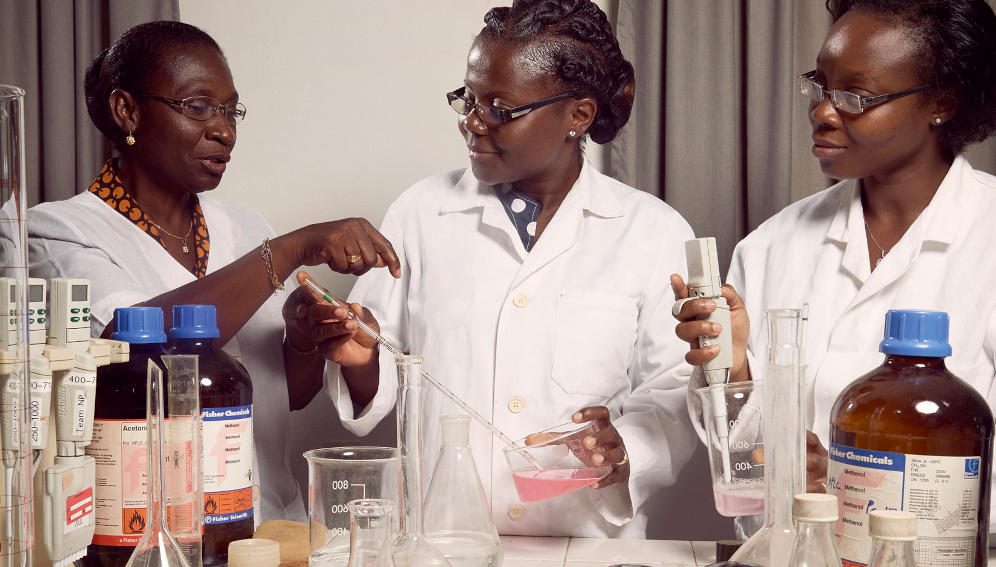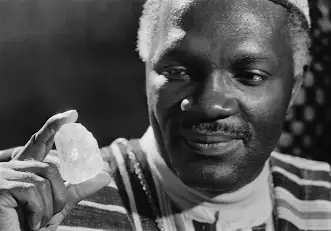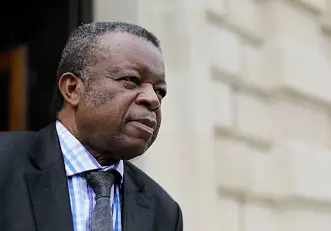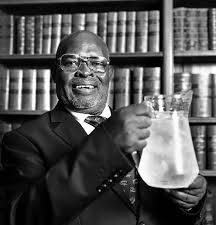
Throughout the decades, scientists have focused on improving and inventing magnificent solutions that have helped generations thrive even today. There are notable achievements and advancements that have been made possible by so many African scientists and researchers.
Here are five African scientists who have significantly contributed to the world of STEM in the last few years:
DAVIDSON NICOL (Medicine)

Davidson Sylvester Hector Willoughby Nicol, also known by his pen name, Abioseh Nicol, was a Sierra Leone physician, diplomat, and writer. Nicol contributed significantly to diabetes research and discovered the breakdown of insulin in the human body. He was able to secure degrees in the arts, sciences, and commercial disciplines, and he contributed to science, history, and literature. Nicol was the first African to graduate with first-class honours from the University of Cambridge, and he was also the first African elected as a fellow of a college at Cambridge University.
BISI EZERIOHA (Engineering)

Ndubisi “Bisi” Ezerioha is a Nigerian-American engineer, professional race car driver, entrepreneur, and engine builder, who has built some of the world’s most powerful Honda and Porsche engines. He is the current CEO and Chief Engineer for Bisimoto Engineering. Ezerioha is involved in import drag racing and pilots a 2006 Honda Insight in the pro stock ranks of the IDRA, IDRC, and CMI series. A chemical engineer by training and entering university at the age of 15, he was a pharmaceutical researcher for years before he decided to branch off. During this time, he gained some recognition in the racing scene for building and driving the fastest carbureted front-wheel-drive vehicle in the world. His automotive creations have appeared in numerous films, television shows, toys, and video games.
JEAN-JACQUES MUYEMBE (Medicine)

Jean-Jacques Muyembe is a Congolese microbiologist. He is the general director of the Democratic Republic of the Congo Institut National pour la Recherche Biomédicale (INRB). He was part of a team at the Yambuku Catholic Mission Hospital that investigated the first Ebola outbreak, and was part of the effort that discovered Ebola as a new disease. In 2016, he, along with other researchers at the INRB and the National Institute of Health Vaccine Research Center in the US, led the research that designed one of the most promising treatments for Ebola. The treatment was successfully experimented with during recent outbreaks in the DRC on the express decision of the then DRC Minister of Health, Dr. Oly Ilunga, despite prior negative advice from the World Health Organization.
KWATSI ALIBARUHO (NASA)

Kwatsi Alibaruho, from Uganda, is a Flight Director for the National Aeronautics and Space Administration. He is a mukiga and the first black NASA Flight Director. Alibaruho started with NASA in 1993 as a Cooperative Education student serving in the Mission Operations Directorate’s ISS Life Support Systems Group. Post-graduation, he served as an ISS Life Support Systems Flight Controller (MCC Call Sign: ECLSS) from 1995 to 2000. During that time, Alibaruho became one of the first ECLSS officers qualified for duty in the new International Space Station Program. He served in this capacity for just over three years until he was selected as a Flight Director in February 2005.
ERASTO BARTHOLOMEO MPEMBA (Physics)

Erasto Bartholomeo Mpemba was a Tanzanian game warden who, as a schoolboy, discovered the Mpemba effect, a paradoxical phenomenon in which hot water freezes faster than cold water under certain conditions; this effect had been observed previously by Aristotle, Francis Bacon, and René Descartes. A paper was published based on the phenomenon with the aid of Denis Osborne, a British physicist who was invited to Mpemba’s school at the time, and he was able to prove experimentally, the accuracy of Mpemba’s observations.
Vodina Sam
Related posts
Reviews
Follow Our Activities On Facebook
4 hours ago
4 hours ago
6 hours ago
8 hours ago
11 hours ago
SUBSCRIBE
[mc4wp_form id=”2012″]
Top Reads!
#BigBrotherNaija “Level Up” Week 6
Though last Sunday Sunday was meant to be a “no-eviction” day, it came as a shocker when fake housemate, Modella…
Dating in 2022; Situationships Are Not For The Fainthearted
Situationships are defined as that space between a defined relationship and something other than a friendship. It is a romantic…
20 Questions With Dinta Media’s Visual Storyteller, Chimeremogo Nwoke
Dinta Media is not really just a media production brand but we like to see ourselves as a hub for…
How Are Nigeria’s Small Businesses Coping?
The current rising rate of inflation and other burdens against the Nigerian economy speaks to the realities of the times.
Thrifting Is All The Rave Now, Here’s Why
By Amy Adindu The affordable clothing movement has gained global attention and acceptance as we’re all trying to look like…
#BigBrotherNaija “Level Up” Week 2
Week 2 of the highly watched Nigerian TV show kicked off with an early plot twist. On Sunday, Big Brother…
#BlueTunes: Burna Boy, Omah Lay Top Album Picks For July
July was a promising month for music lovers; from Lizzo’s album titled Special and Imagine Dragons’ Mercury, (Acts 1 &…
#BlueTunes Album Picks For June
Gbagada Express – Boj Bolaji Odojukan, popularly known as BOJ, was raised both in England and Nigeria. He shot to…
“A Creative’s Dream” with Jeff Chinonso
On the 26th of June 2022, Jeff Chinonso hosted his first solo art exhibition. The Augmented Reality exhibition themed “A…
Nigerian API-based company Thepeer raises $2.1 million
Tech infrastructure startup Thepeer has raised a $2.1 million seed round according to a report from TechCabal. Thepeer, a Nigerian…
Dika Ofoma, Ugochukwu Onuoha take on grief in Debut Film “The Way Things Happen”
The twenty-minute film focuses on the loss of a loved one, and how grief changes a person.
Nigerian Startups might just be Crippled by a Recently Leaked bill
Over the years there has been talks of amendment on the 2007 Act of the National Information & Technology Agency (NITDA).
Why We Love Kelechi Amadi Obi
The definition of talent is Kelechi Amadi’s iconic story. Imagine a person who studies law in school, gets called to Bar, and leaves it all for something different and unrelated…Painting!
















